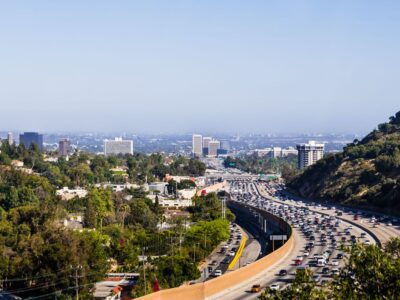America’s Leading Environmental Court
Hint: It’s in the southernmost state. Which is not Florida.
The state court on the cutting edge of environmental law is a long way from the major population and media centers, which may be one reason it doesn’t get much attention. It deserves more. The Hawaiian Supreme Court has been forging new paths in environmental law that may lead the way for other courts in years to come.
Environmental rights. In 2023, the court issued two major decisions relating to climate change. The first case, In re Hawaii Electric Co. , involved a biomass power plant’s request to sell energy to a utility. The power plant planned to use offsets from planting trees to achieve carbon neutrality.
The state’s Public Utility Commission (PUC) found that “the project would produce massive GHG emissions, and that the power plant’s promise of carbon neutrality rested on speculative, uncertain assumptions.” The PUC rejected the project even though it would produce fewer emissions than fossil fuels.
In upholding the PUC, the court said that the commission was “charged with protecting the right to a life-sustaining climate system.” And speaking of the urgency of the climate crisis the court said, ”The reality is that yesterday’s good enough has become today’s unacceptable. The PUC was under no obligation to evaluate an energy project conceived of in 2012 the same way in 2022. Indeed, doing so would have betrayed its constitutional duty.”
Lawsuits against oil companies. The second 2023 case, Honolulu v. Sunoco, involved a suit against oil companies for their role in fostering climate change. This is the first state supreme court ruling on this important issue.
The Sunoco lawsuit alleges that the oil companies deliberately concealed the dangers of climate change and promoted an active disinformation campaign. The court rejected the defendants’ effort to dismiss the case in a careful, lengthy opinion.
First, the court held that Hawaii had jurisdiction over the oil companies because the case was connected with their marketing and sale of products there. Thus, the defendants had to answer to Hawaiian law. The law about these jurisdictional issue is murky but the Hawaiian court’s analysis seems well grounded.
Second, the court rejected the argument that Hawaiian law was preempted by the federal common law regarding interstate nuisances.. This point involves some esoteric legal doctrine that isn’t relevant here. The main thing to know is that federal law used to include a common law of nuisance, but the Supreme abolished it.
Third, the Court held that the lawsuit was not preempted by the federal Clean Air Act (CAA) because “these claims potentially regulate marketing conduct while the CAA regulates pollution. “ That seems pretty clear to me, not to mention the fact that the Clean Air Act generally favors state laws that go beyond federal requirements.
There are a slew of similar cases pending across the country. The Hawaiian court’s careful analysis may provide a template for other courts.
Public trust doctrine. Another area where Hawaii has been in the lead is the public trust doctrine. This doctrine holds that the government has a special duty to consider the public interest when it makes decisions about key resources. Most states recognize the doctrine but limit it to water bodies (and often only a subset of those).
Hawaii’s version of the doctrine is much more robust. For one thing, it applies not only to surface waters but also groundwater. It also applies to all public lands and where lava has created new lands abutting private property. Another distinctive aspect of Hawaiian public trust doctrine is that it is partly rooted in native Hawaiian customary law.
Each state’s legal system has its own wrinkles, starting with differences in state constitutions. But there is much that other states could learn from Hawaii.
Reader Comments
3 Replies to “America’s Leading Environmental Court”
Comments are closed.






Dan, does anyone ever read and think about and truly act upon this extremely urgent information that should have solved our problems starting last year, because we are losing complete control of our environment as the evolving most disastrous heat wave that is evolving this year that shall be much worse than last year?:
Opinion, Berkeley Blogs
Reflections on the Weather Mayhem of the Summer of 2023: We Told You So, Now What?
By Dennis Baldocchi
Too bad The Powers That Be refuse to let you implement your reorganization of Berkeley’s environmental resources because it threatens their Thou Shalt Not Mess With Their Wealth that is derived from a dozen independent fiefdoms that prevent implementing solutions that will control the out of control global warming we have today.
Truly thrilled to be externing for one of the Justices on this court this coming summer. I’m finding more hope lately in state supreme court action on climate/environmental issues and grateful that Hawaiʻi is leading the way.